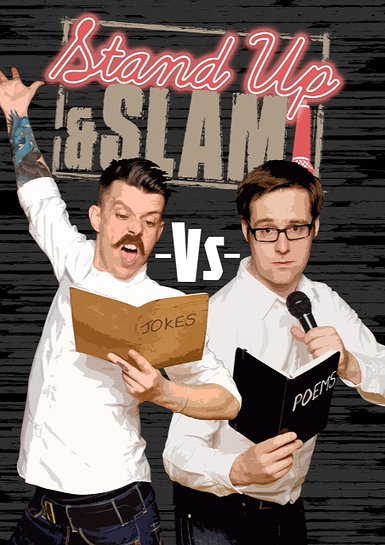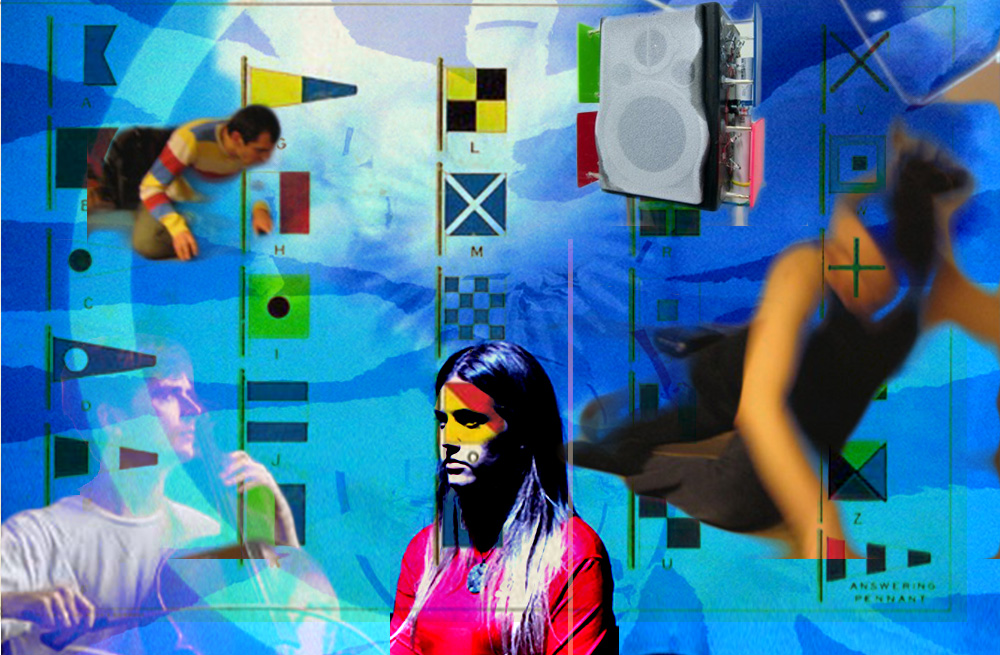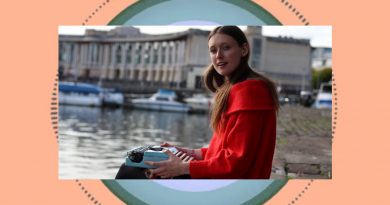Sage and Time @ The Charterhouse Bar 22/02/12
– Reviewed by Dana Bubulj –
Perhaps it was the weather that kept this night to an intimate gig of fewer people than usual, which is a shame, as it was another event of the fantastic standard that we are used to with Sage and Time.
Hosts
The hosts opened each half with their own poems, setting the tone of the evening with effusive introductions to both the open mic poets and the excellent features.
- Richard Marsh’s take on the bizarre love between two people at the gym, each embodying each other’s ideals was a nice opening to an evening whose theme seemed love-bent. It’s a shame he forgot sections, but with asides like “basically, it turns out she likes him too” to continue the narrative, he acquitted himself admirably.
- Anna Le‘s All The While was a tender take on love whilst the world continues. She acknowledges politics and injustice (“teachers not renumerated”) and in doing so, the declaration becomes more powerful for not being rose-tinted. There’s a beautiful calm, amidst the “commotion” of the world, where the poet is “inescapably falling in love with you”.
Features
- Dean Atta has a great stage presence, performing his confessional poetry with confidence. His sensual first poem was about Grindr in Italy, where “new technology found intimacy…in an ancient city”. His second, My Love, (5th Draft),was a delicate portrayal of feelings not ready to be pinned down. As a “manifesto of love”, I Don’t Want To Write You Poems, also sought to define feelings with a lovely mix of ephemeral messages left on mirror steam and physical demonstrations.
- Mother Tongue is an interesting one about not sharing his mother’s first language (Greek), leaving him an outsider when “forgetting to translate”. I loved the line: “our mother has swallowed her tongue”.
- This is not supposed to be Therapy was a great take on the expectations placed upon us by both society and ourselves. Congenially taking us through familiar doubt (“I am a leader… right?”), Atta turns away from what we’re “supposed to do” as a way to define the self, vowing instead to do so individually by “any app necessary”.
- He finished with the poem that brought him most into the public eye via Youtube (& now iTunes), “I am nobody’s nigger”: a commentary on language (“don’t tell me it’s a reclaimed word”) in relation to racially incited violence (“that’s one of the last words Steven Lawrence heard”). It’s performed passionately, with stirring references to ancestry and the slave trade, finishing elegantly: “call me nigger cause you’re scared of what brother means”.
- Deanna Rodger was an exuberant performer whose work is very rooted in her past. My favourite begins: “I always get asked, where’re you from?”. It’s a great take on the frustration of growing up in London, steeped in British culture while also (and more visually apparent) “a product of miscegenation”.
- Her main focus is her youth, mostly in its innocence. In her 22 Now and 22 to 19, she we see her hanging out after school, mooching with friends on routemaster buses like “fresh princesses” with a breathlessly sincere nostalgia that that certainly took a few of the audience back. Young love doesn’t escape her canny gaze: from the plausibly confused 1432, complete with premature declarations “slipping out as easily as he slipped in” to the obsessive Love Ambitions (I liked wanting to be their student ID “so you need me to get into the library”, and that she peppered her delivery with interjections like “I feel like a stalker!”)
- Turning to the present were two poems: If Chloe Can and Nowadays. The former, about a young girl’s shattered self esteem, was earnest and hopeful. Nowadays tackled contemporary apathy in a heartfelt plea for people to once more pay attention to the world around them (“who cares about voting nowadays?”) While not new in content, it was passionately performed and a great close to her set.
- Peter Hayhoe and Sarah Redington performed Dalston, a poem accompanied by music. Descending into Someone Like You worked, but could have been more effective in a smaller dose for those inured to Adele. I enjoyed most the poem’s performative aspect: its emphasis on the act of story-telling (“I say, ‘your coffee is getting cold'”), complete with distinctions between on truth and might-have-beens: “Pause. This is not a true story…The real story involves…”
Open Mic
- Richard Purnell spoke of the N word in rap music as a white fan, addressing its contribution to the vilification of black people in society. He could have been more fluid and the beginning section (“what rhymes with…”) was horrifically awkward.
- Lettie McKie performed three sonnets of which the third, about her elderly neighbours, was the most powerful, starting from a lovely first line “before the hospital, he always slept beside her”.
- Edward Unique‘s Valentine’s Day poem, in the interests of balance, had a clearly defined three part structure, but alas lines like “she said I’m too nice for her” and “[it was left for] the nice guy to sweep up your stupidity”, left a bitter taste.
- Joshua Seigal‘s AA Milne-esque Kid’s Poem about bullying was appropriately simplistic with a comic twist. His adult poems displayed an extensive vocabulary, with fast paced patter strewn with literary terminology. Camden Town was my favourite, conjuring peacefully stoned hipsters with “hours to shoot from the sky like ducks”. He is up in Edinburgh this year with We all love Llamas!.
- Ben Newberry’s character pieces were nice enough: my favourite was “Royal Oak” a nod to the old guard of traditional pubs, less transient than their surroundings.
- Sophie Cameron‘s modern fairytale of a Prince and his poor yet “ridiculously attractive” squeeze certainly uses some visceral imagery. Juxtaposing love that “transcends all bounds” with raucous sexuality (“and by swooned I mean he wanked his dick off”) Her second poem, “I am a posh cunt” set up a familiar straw man who likes oysters “because they’re expensive rather than their taste”.
- Jethro performed three sombre poems, only one of which was his own. His delivery suited Tennyson better than Keats, but was best for his own, Time Passes, a lament for his lost brother who feels “just a moment ago”.
- James Webster performed two poems: Fate (a little spoilt by phone scrolling), about unexpectedly meeting and bonding with someone not seen in years, (“not inevitability but an extra glass of wine”). The second was nicely done, filled with entreaties to “listen” to poetry “beneath the skin”, in its beats of “iambs and trochees”.
- Keith Jarrett, finished the evening with two poems: an uplifting old favourite that with, fluid plays on words, takes on political slogans, making them his own for people who “believe in change but [are] still short changed”. The main argument of I do not believe in casual sex was that there’s “no such thing” because “casual suggests ease”. Its playful conclusion, “however…I do believe in a damn good time…”, lightened what could have been interpreted as overt moralising.
To conclude: Fantastic night. More soon, please.
There will indeed be more, coming up soon on the 28th of March! – Ed






Pingback: Review of Sage & Time | James Webster: performance poetry, reviews, videos, text poetry and musings